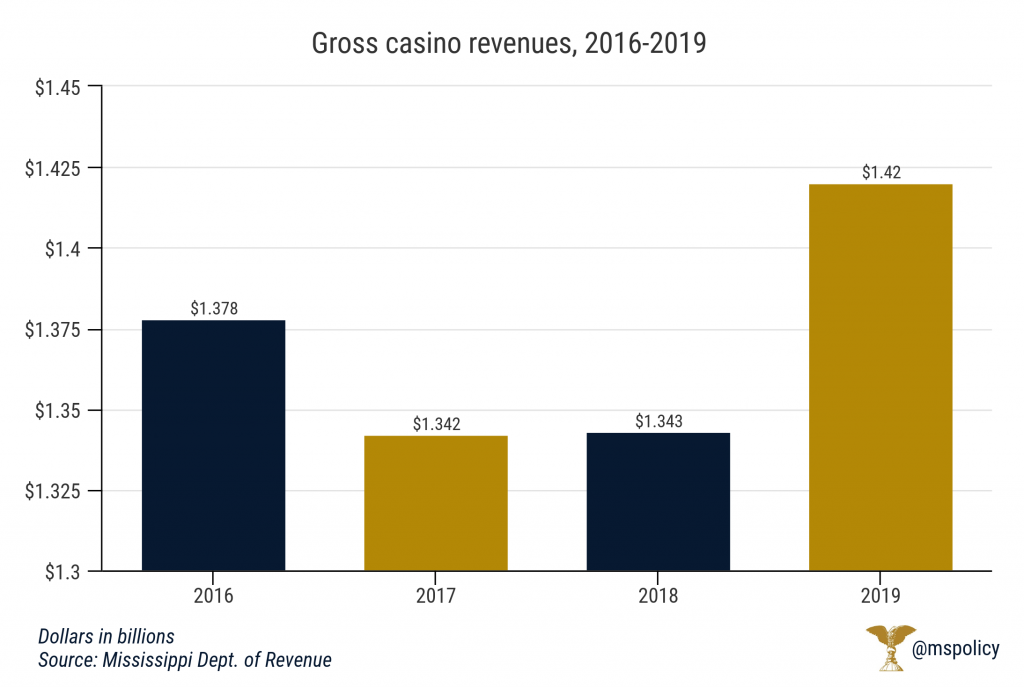During fiscal year 2019, which ends July 1, the Mississippi Department of Revenue has transferred more than $88 million into the general fund, an increase of more than $6.4 million over the same time last year.
Total gaming tax collections, which include contributions to local governments and a fund for improvements to roads and bridges, totaled more than $169 million from July to February. That’s an increase of more than $9.2 million from last year’s numbers.

In the past four years, gross revenues for the state’s casinos have been largely flat until this year, with revenues up by more than $76 million to more than $1.42 billion. This amounts to 5.71 percent growth over the same time frame last year. That’s a $42 million increase from fiscal 2016, when the state’s casinos earned more than $1.378 million.
Only five of the state’s 28 casinos located in the central and northern parts of the state aren’t offering sports gambling. The first sports book operations in the state began taking bets in July.
If Nevada’s revenues from sports gambling are any guide, this windfall could continue to grow since Mississippi is the only state in the South with legalized sports gambling. The Louisiana Legislature might consider adding sports gambling to its casinos in its session, which starts April 8.
Nevada’s data shows that revenue from 2009 from sports pools added up to more than $118 million. In 2018, that figure grew to more than $253 million, an increase of 114.25 percent.
Mississippi, like five other states, got into the sports gaming business thanks to a 2018 U.S. Supreme Court decision, Murphy vs. National Collegiate Athletic Association, which struck down a federal law known as the 1992 Professional and Amateur Sports Protection Act.
This law allowed only Nevada casinos to host sports gambling.
In 2016, Mississippi temporarily legalized daily fantasy sports and created a study commission. The Legislature approved permanent legislation in 2017 that not only set guidelines for the Gaming Commission to regulate daily fantasy sports, but also struck language from state law that prohibited betting on sports in anticipation of a decision in the NCAA case.
Unlike Nevada — where players can set up an account at a casino and place wagers anywhere in the state from computers and mobile devices — Mississippi regulations require that all sports betting take place in a licensed casino and on mobile devices inside the casino property.